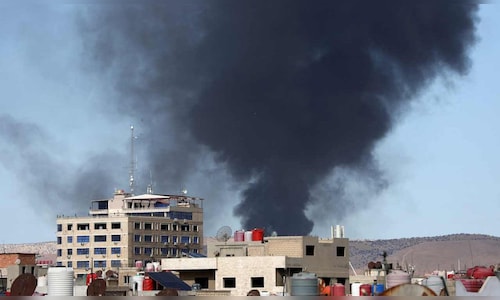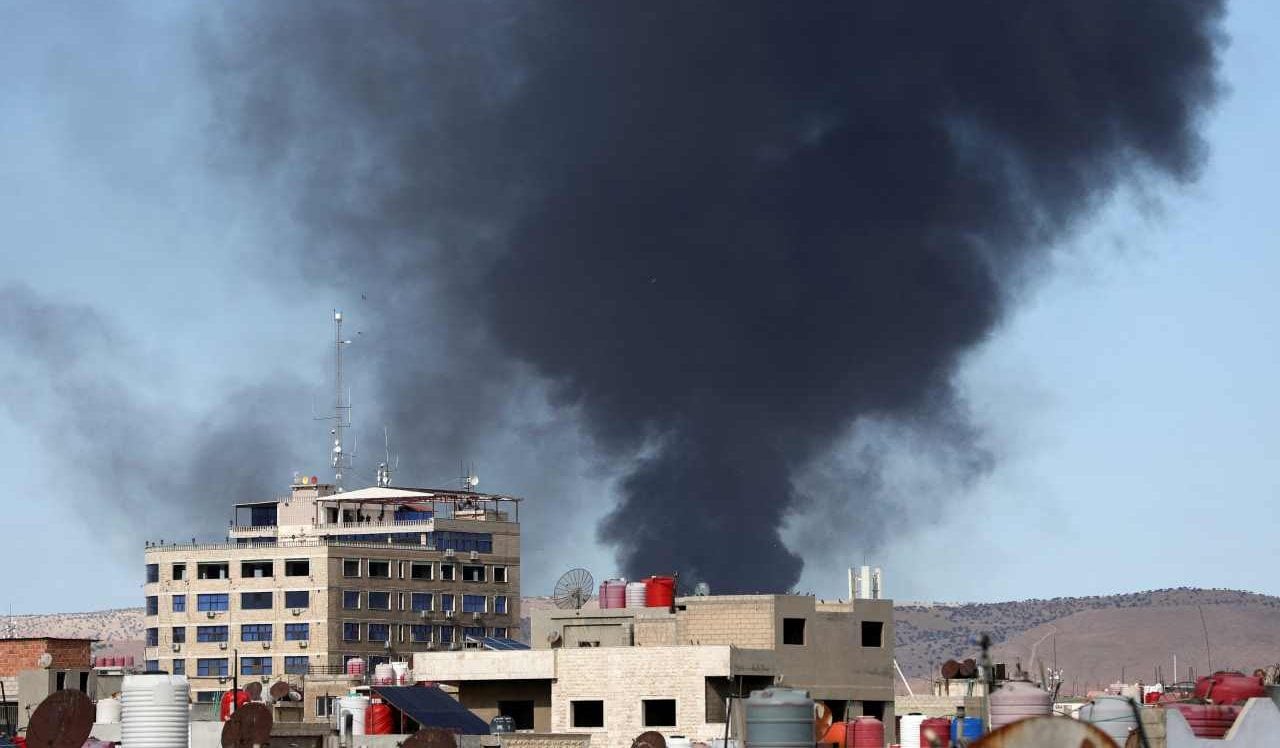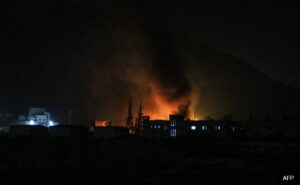

And then Damascus fell in less than ten days. And the scared and deposed and abandoned President Bashar Al Assad, ruling with iron fist for over two decades, had to run for life and sought political asylum in Russia. Moscow claimed that they had given asylum to Assad and family on humanitarian grounds.
Even though during his flight several stories and conspiracy theories cropped up like his plane had possibly crashed or he sought asylum in UAE — a country that from the Arab world has been the first to normalise ties since Assad was condemned in 2012 for excesses against the civilians and was expelled from the Arab League.
The lonely Arab autocratic ruler survived when under the garb of fighting the ISIS in 2015, Assad invited the Russian forces to defend him. For Moscow, which had learnt of the perfidy of the West in the Libyan theatre, it was a strategic move to counter the West, fight the ultra-terrorist group ISIS/ISIL /Daesh and to defend its own strategic interests especially its only naval base at Tartous on the Mediterranean which provides it the strategic ability to cater to its African enterprise.
Moreover, the Russians were able to restore their reputation as a reliable ally, supporting a friend in need and standing by him under all circumstances. This earned them many friends in the Arab world, not to mention Iran. Russia became a credible security player in the region. Therefore, the removal of the Assad regime—and Russia’s inability to defend him, due to its prolonged involvement in the war in Ukraine—would undoubtedly have a negative impact on its strategic assets, influence, and maneuverability. This is true even as Russia has sought to navigate some diplomatic arrangements under the Astana format with Turkey and Iran, as well as through recent engagements, such as the Doha Forum.
Iran is the biggest loser in the removal of Assad, who was part of their ‘Axis of Resistance’ and provided the strategic connectivity and support to its overt and covert operations in the Levant especially in maintaining and sustaining Hezbollah across Syria and Lebanon for decades. HTS which is comprised of Sunni militias and whose leader Jolani has been mutating from Al Qaeda to ISIS to Jabhat Al Nusra to Jabhat Fatah al Sham to the current avatar in HTS, is obviously rabidly opposed to Shia Iran even if they will find some accommodation with Russians. Iranian Embassy in Damascus was attacked and vandalised as the Iranian forces, IRGC and military Advisers escaped the wrath of the rebels.
Netanyahu was elated when he claimed that overthrow of Bashar al-Assad in Syria was a “historic day in the… Middle East..and the fall of a “central link in Iran’s axis of evil” adding that these events are “a direct result of the blows we have inflicted on Iran and Hezbollah, Assad’s main supporters. It has triggered a chain reaction across the Middle East, empowering those seeking to break free from this oppressive regime.”
He took advantage of the flux and forcefully announced that the Golan Heights — which he won in 1967 war and annexed in 1981 — will remain Israeli for eternity. Israeli forces not only breached and occupied the Golan buffer zone but also kept bombing various targets including allegedly Assad’s chemical factory, Hezbollah hideouts and ISIS locations in concert with his iron clad benefactor USA which maintains over 900 strong anti-ISIL US forces in North Western Syria. Arab countries condemned the Israeli move of breaching and annexing the buffer zone by Israel.
USA since the onset of Arab Spring in 2011 has been trying to engineer regime change in Syria by supporting rebels and creating Free Syrian Army as well as Syrian Kurdish Democratic Forces (SDF) – which are the nemesis of its NATO ally Turkey.
Even though the incoming president Trump warned Biden Administration that it was not ‘our war’ and advised to stay out, Washington DC‘s complicity and support to HTS and others remained steadfast as their strategic goals have been achieved irrespective of the fact that it was done by a militant and a designated terror entity on whose leader Jolani they had placed a bounty of $10 million. For both US and Israel the weakening of Iranian and Russian influence is a strategic gain which even Trump referred to connecting the dots.
Turkey is the biggest beneficiary. President Erdogan, along with the Arabs and USA, has wanted Assad gone for long. It has been supporting the Syrian National Army (SNA) fighting against Assad forces as well as against the US supported Kurdish separatist groups PKK/YPG etc.
After Assad’s readmission to the Arab League in 2023, Erdogan has been attempting to meet with and persuade the increasingly isolated Assad to engage with the opposition and seek a political modus vivendi. But Assad, driven by false bravado, and not even reading the tea leaves and fast changing global and regional power equations especially with regard to Russian and Iranian entanglement in their stretched wars, treated the opposition as terrorists.
He also did not care of his people of whom 90 percent are under the poverty line. An unusual combination of domestic and international factors expedited his regime’s demise like a pack of cards. Last bastion of the regime change agenda has fallen. Turkiye is opening its Yayladagi border gate with Syria to manage the safe and voluntary return of the millions of Syrian refugees it hosts.
What happens next is both fraught with hope and despair as even if HTS leader Jolani has made right noises and seeking accommodation through amnesty of all soldiers, officials and fighters for an inclusive future of Syria and ecstatic Syrians. The rebel command claimed that they would not tell women how to dress. “It is strictly forbidden to interfere with women’s dress or impose any request related to their clothing or appearance, including requests for modesty,” the command said in a statement on social media.
Their ultra-Islamic, extremist and terror credentials will keep the credibility crisis alive as their erstwhile partners and ideological Gurus are gaining ground in the Levant. Moreover, their current benefactors—especially Turkey and the USA, both of which have their own competing agendas and militia groups in Syria—not to mention Israel and the Gulf countries—will pose a major challenge for the Syrian opposition going forward.
For the time being HTS have appointed a new Prime Minister and working closely with former PM Ghazi alali and letting the institutions function even if the Assad palaces and property looted by mobs. Hopefully, the embattled and thoroughly aggrieved Syrians, 13 million of whom have been displaced and refuges for over a decade, will find succour in New Syria and they will not go the Libyan, Yemen or the Iraqi way. As usual a lot will depend on the major players whether they play spoilers like elsewhere or take on a more constructive role helping stabilise this beleaguered civilisational country .
—The author, Amb. Anil Trigunayat, is a former Indian Ambassador to Jordan, Libya and Malta, and currently heads the West Asia Experts Group at Vivekananda International Foundation. Views expressed are personal.
Read his previous articles here



